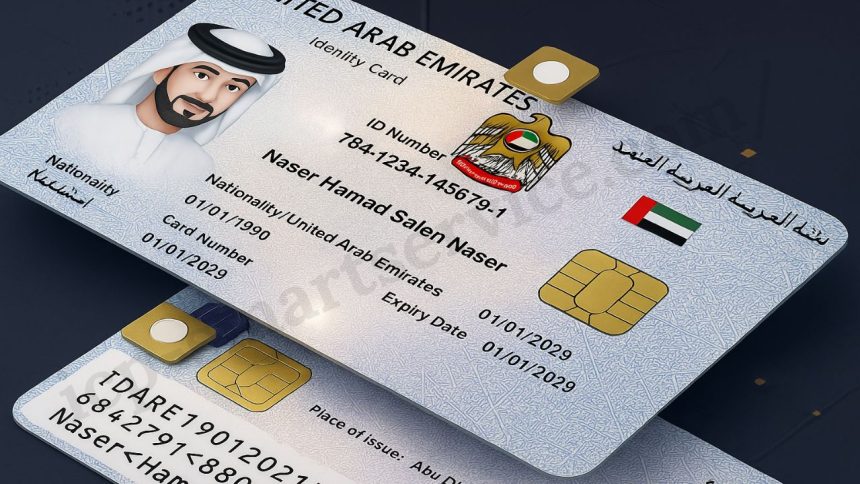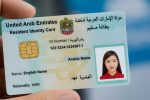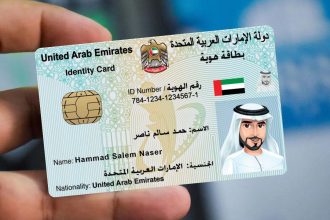No More Emirates ID Cards? UAE to Launch a Facial Recognition-Based Digital ID System. The United Arab Emirates (UAE) is preparing to phase out the need for physical Emirates ID cards, introducing a more advanced, secure, and user-friendly digital ID system. This innovative system will utilize facial recognition and biometric authentication to enable residents to seamlessly access critical services.
Digital ID in the UAE
The new digital identity system is set to be rolled out within the next year and is designed to eliminate the physical handling of Emirates ID cards. This cutting-edge initiative is spearheaded by the Federal Authority for Identity, Citizenship, Customs, and Port Security (ICP), reflecting the UAE’s drive toward smart governance and technological innovation.
Sectors Targeted for Digital Transformation
The ICP has announced its intent to broaden the application of e-Emirates ID across various sectors, including:
- Banking
- Healthcare
- Hospitality
- Telecommunications
This shift is aimed at simplifying identity verification processes, enhancing user convenience, and promoting faster access to essential services.
| Sector | Current ID Requirement | Digital ID Benefit |
|---|---|---|
| Healthcare | Physical Emirates ID at clinics/hospitals | Contactless check-ins using facial recognition |
| Banking | Original ID is needed for transactions | Secure biometric verification via UAEPASS |
| Hospitality | Mandatory ID for check-ins | Facial ID recognition for faster hotel entries |
| Telecommunications | ID is required for SIM issuance | e-Verification through biometric systems |
Concerns Raised Over Physical ID Dependency
During a recent Federal National Council (FNC) session, member Adnan Al Hammadi raised a significant concern regarding the continued dependency on physical ID cards, despite the UAE’s substantial investment in digital infrastructure.
He cited examples such as:
- Patients needing physical IDs for medical appointments
- Banks refusing digital IDs for opening or operating accounts
- Hotels requiring original cards at check-in
“There is an urgent need for fast, effective solutions to streamline identity verification in these essential sectors,” Al Hammadi stressed.
ICP Response and Vision for the Future
In response, Minister of State for Federal National Council Affairs, Abdul Rahman Al Owais, affirmed the success of the e-Emirates ID in multiple services. He assured the council that the ICP is committed to expanding digital ID integration in the highlighted sectors.
According to the minister, the UAEPASS app, the UAE’s national digital identity platform, is at the core of this transition. This secure, government-backed platform enables residents to:
- Access over 6,000 digital services
- Authenticate themselves using face recognition
- Store their Emirates ID securely on their smartphones
UAEPASS and the Role of Biometric Technology
Introduced during GITEX 2021, the UAEPASS facial recognition feature is a landmark in the UAE’s smart ID ecosystem. It allows users to log in to government portals, financial institutions, and private services using just their face, no password or physical ID required
- Face recognition login
- Encrypted e-document storage
- Seamless integration across sectors
- Compliance with data protection standards
This system is not merely a convenience but a robust measure to enhance security, accuracy, and efficiency in identity verification.
Collaboration Across Sectors for Successful Implementation
The ICP acknowledges that challenges remain in identity verification, especially during the initial stages of rollout. However, collaboration with private sector entities, banks, healthcare providers, and telecom operators will help in:
- Testing advanced biometric systems
- Gathering feedback for improvement
- Promoting wider adoption of e-Emirates ID
The authority is also investing in training, infrastructure, and public education to ensure a smooth transition.
Ensuring Security and Trust
Security and privacy are at the heart of this transformation. The ICP has confirmed that the digital identity system adheres to local laws, international standards, and data protection protocols to safeguard residents’ information and earn public trust.
Conclusion
The UAE’s transition from physical Emirates ID cards to a biometric facial recognition-based system marks a pivotal moment in the region’s digital evolution. With the ICP and UAEPASS leading the way, citizens and residents can expect more convenient, secure, and seamless access to essential services, all without needing to carry a physical ID.










